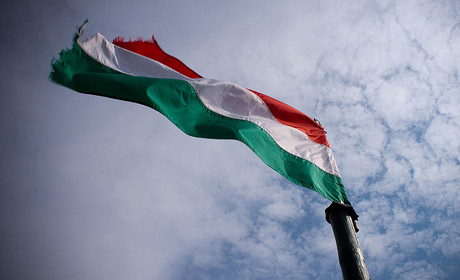
New report echoes previous criticisms of Hungary over its controversial system of media regulation
Credit: Zselosz in Flickr. Some rights reservedHungary's controversial media law is having a chilling effect on press freedom in the country and threatens to do the same abroad, an international mission of press freedom groups has warned.
Between 14 and 16 of November the mission met with lawyers, journalists, editors, professional associations, representatives of civil society, the new media authorities, and the government representative to discuss the law, which came into effect on 1 January – the same day Hungary began its six-month presidency of the EU.
Their report states that the legislation – which allows Hungarian courts to force journalists to reveal their sources "in order to protect national security" – is not consistent with EU standards in its provision for protection of sources and media plurality.
It also raises concerns over the limited possibilities for judicial review of decisions made by Hungary's new National Media and Infocommunications Authority (NMHH).
Under the legislation, all media organisations are required to register with the NMHH or risk substantial fines if deemed to have breached the regulations, including violating "public interest, public morals or order".
The controversial system of "co-regulation" gives the NMHH authority across platforms and brings all major broadcasters and newspapers within its scope.
The mission's report warns that the system is "no substitute for self-regulation" and is "effectively outsourcing censorship with the co-operation of national and international media owners alike".
The report will put further pressure on Hungary's ruling Fidesz party, which brought the law into effect, following previous criticism from the European Parliament, the UN human rights council, and the Organisation for Security and Co-operation in Europe (OSCE), the UN Special Rapporteur on Freedom of Expression, and a host of international press freedom groups.
According to one of those groups, Index on Censorship, Hungary is keen to export the legislation to deflect criticism. The partnership mission's report warned that any such move could endanger press freedom across Europe.
Hungary was forced to make amendments to the initial draft of the legislation after it was rejected by the European Parliament for not meeting the the Audiovisual Media Services (AVMS) Directive and the Charter of Fundamental Rights (Article 11 on freedom of expression).
A vote on the subsequent amendments was then delayed after MEPs from several parties complained that had not had enough time to assess them and did not believe they went far enough to guarantee freedom of the press.
The mission behind the recent report was made up of representatives from the following groups: Article 19, Freedom House, Index on Censorship, Independent Journalism Centre Moldova, International Press Institute, International Media Support,European Federation of Journalists, Media Diversity Institute, Open Society Media Programme, the Network for Reporting on Eastern Europe, South East Europe Media Organisation and South East European Network for Professionalisation of Media.
Free daily newsletter
If you like our news and feature articles, you can sign up to receive our free daily (Mon-Fri) email newsletter (mobile friendly).
Related articles
- Predictions for journalism 2024: misinformation, online safety and press freedom
- New digital platform helps support free press in Sudan
- Peter Jukes: 'More diversified media ownership is in the public interest'
- Three steps to protect newsrooms from press freedom attacks
- What journalists can do to prevent and fight SLAPPs









